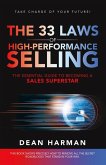Branding in the 21st century has grown more complex than ever before. Trust, which once served as a great ally of brands during the 20th century, now appears as a rare component in people's relationships with brands. Consumers and users demand more from their products and services, seeking constant advancement to the next level. They expect brands to actively improve their lives, going above and beyond the expected duty. In a market saturated with choices, becoming essential is crucial for a brand to stand out and thrive. The presence of choice might be appealing as a theory, but the reality is that people might find more choices to be debilitating. One of three things happen when people have too many decisions to make: 1. Consumers end up making poor decisions; 2. Consumers are more dissatisfied with their choices; or >When a brand is unique, it taps into deeper consumer desires and creates an emotional connection beyond satisfying basic needs or functions. This connection builds loyalty, as customers see the brand not just as a product or service but as an integral part of their identity or lifestyle. An essential brand does more than deliver quality-it offers a unique value proposition that resonates personally, setting it apart from competitors. In a crowded market, this appeal makes it easier for consumers to choose the brand repeatedly, reducing decision fatigue. It also drives word-of-mouth promotion as people naturally share compelling things across multi-channels, amplifying the brand's presence without requiring heavy marketing. In short, being unique helps a brand create lasting loyalty, boost its visibility, and maintain relevance, even as new options constantly emerge.
Bitte wählen Sie Ihr Anliegen aus.
Rechnungen
Retourenschein anfordern
Bestellstatus
Storno







